Know Your Broker: Attending the IBBA Conference
 Many moons ago when we at Apex first started attending the IBBA conference, there were maybe 50-100 people there. These days there are 2,000 members and there are regularly 700-1,000 people at conferences. We go for many reasons, but perhaps the most important is that going helps us become better brokers and hence get better outcomes for our clients.
Many moons ago when we at Apex first started attending the IBBA conference, there were maybe 50-100 people there. These days there are 2,000 members and there are regularly 700-1,000 people at conferences. We go for many reasons, but perhaps the most important is that going helps us become better brokers and hence get better outcomes for our clients.
Learning and Networking
As with any conference, you’re going to have a great opportunity to learn and network. There are plenty of talks and breakout sessions (our very own Andy Cavanaugh presented at this year’s conference on how to use your time wisely) that will keep you up-to-date with developments in the industry, including changes in legislation and approach.
We also get the chance to constantly refine our best practices. It’s true that it’s important to stick to systems and methods you’ve built in-house, but when you get to hear similar methods and systems working for colleagues in Australia or Europe, you can assure your clients that you’re not just following some in-house traditions, but practices used around the world.
Part of those practices, particularly in the last ten years, have revolved around technology. There are so many software tools available now to help you screen candidates/market and value businesses/track your work. We built our own system some years ago but we can always look at features from the new software on the block to see if they might be worth incorporating into what we are doing. Of course there’s always all the swag you can pick up on Vendor’s Row.
You Don’t Know It All
Early on there was some resistance to going to the conferences and getting certified — the thinking was that “we know what we’re doing and we don’t need to go to some fancy conference to know that.” But Doug Hubler had witnessed how valuable those conferences were for himself and the other brokers who joined him so he effectively bribed (read: gave bonuses) brokers to get the certifications. “Our business just blossomed after that,” he notes.
The conference also helps tick some practical boxes, as continuing education is part of maintaining certifications, and those can be knocked out while there.
One more way to build your knowledge? Masterminds. You can sit with peers and work through particular challenges you are going through or have gone through in the past and tap the wealth of experience gathered together for the convention that you wouldn’t otherwise normally have access to.
If you want to hear some reflections from Andy and Doug, check out this podcast episode recapping their experience at this year’s conference in Louisville.

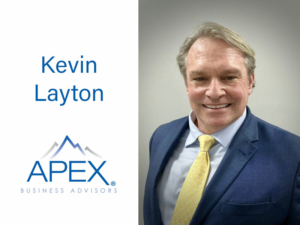 Kevin Layton was an entrepreneur from an early age. At 17 he had a letter of intent and was doing diligence on a dairy operation in Central, PA not too long after he got accepted to Penn State in Dairy Science. The more he learned about business the more he couldn’t make the math work to buy the herd and then farmland on the limited earnings the dairy business supplied.
Kevin Layton was an entrepreneur from an early age. At 17 he had a letter of intent and was doing diligence on a dairy operation in Central, PA not too long after he got accepted to Penn State in Dairy Science. The more he learned about business the more he couldn’t make the math work to buy the herd and then farmland on the limited earnings the dairy business supplied.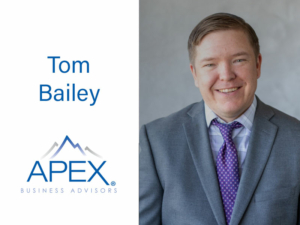 Tom Bailey, like several other brokers on our team, grew up on a farm and hence developed a great love for the outdoors. One particular aspect of the outdoors that Tom was drawn to were the waterways of America. He’s kayaked the whole Missouri River and has also kayaked all the way down to the Gulf of Mexico.
Tom Bailey, like several other brokers on our team, grew up on a farm and hence developed a great love for the outdoors. One particular aspect of the outdoors that Tom was drawn to were the waterways of America. He’s kayaked the whole Missouri River and has also kayaked all the way down to the Gulf of Mexico.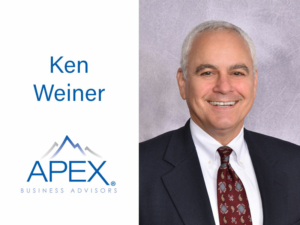 One of the ways a broker joins our team is by being a client of ours. We either sell their business, or help them buy one, and they end up loving the process and come knocking some years later. Ken Weiner is one of the former:
One of the ways a broker joins our team is by being a client of ours. We either sell their business, or help them buy one, and they end up loving the process and come knocking some years later. Ken Weiner is one of the former: 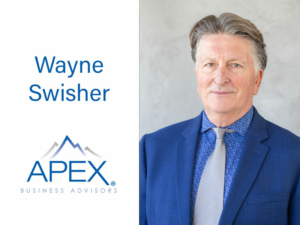 Wayne Swisher is one of the newest additions to the
Wayne Swisher is one of the newest additions to the 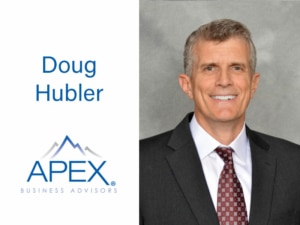 Doug Hubler has been a broker for over two decades now, so you might be forgiven for forgetting he had a whole other life before he ever started selling businesses, a life that took him all around the Midwest and up the ranks in the financial world.
Doug Hubler has been a broker for over two decades now, so you might be forgiven for forgetting he had a whole other life before he ever started selling businesses, a life that took him all around the Midwest and up the ranks in the financial world.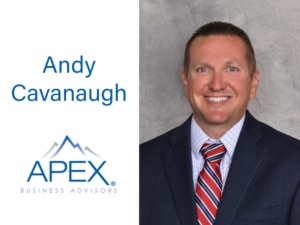
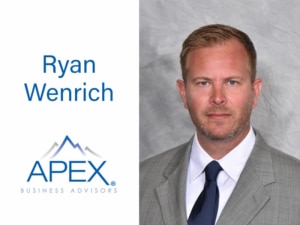 Having been a business owner multiple times,
Having been a business owner multiple times, 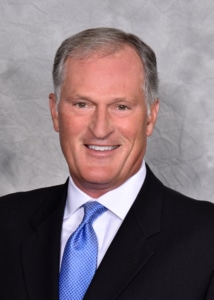
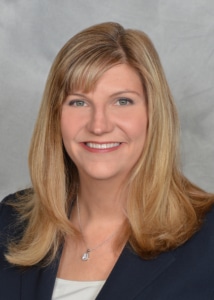 From the very start of her career, Debbie Small was interested in small businesses and entrepreneurship. Even as a child she confessed, “I didn’t read Glamour magazine like my girlfriends, I read Entrepreneur!” In college, she put those lessons to work and created Party Pizzaz, a business that sold unique party favors to sororities and fraternities at Kansas State University. She spent the first decade after college as a Senior Media Consultant for Time Warner producing comprehensive television advertising campaigns for small business owners and placing them on cable networks. She found the work fulfilling and loved the opportunity to consult with business owners to assess their needs and grow their revenue.
From the very start of her career, Debbie Small was interested in small businesses and entrepreneurship. Even as a child she confessed, “I didn’t read Glamour magazine like my girlfriends, I read Entrepreneur!” In college, she put those lessons to work and created Party Pizzaz, a business that sold unique party favors to sororities and fraternities at Kansas State University. She spent the first decade after college as a Senior Media Consultant for Time Warner producing comprehensive television advertising campaigns for small business owners and placing them on cable networks. She found the work fulfilling and loved the opportunity to consult with business owners to assess their needs and grow their revenue.